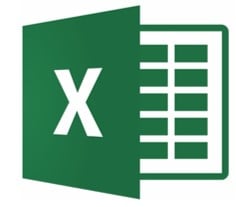3 Best Free Microsoft Access Alternatives [TESTED in 2024]
Quick Summary: While I stand behind all the Microsoft Access alternatives below, LibreOffice Base stood above the others. It has an intuitive interface, integration tables, guided wizards to streamline the database creation, and cross-platform compatibility for multi-user databases. The software is free and open-source.
When Microsoft first released Access in 1992, it was a game-changing program for creating relational databases. Over the past decade, the software has seen a decline in popularity, as free alternatives were being released with advanced capabilities and features that are similar to Access.
While Microsoft continues to add features to the desktop version of Access, it no longer supports the online version.
In my search for the best free alternatives, I downloaded dozens of database tools to see if they could replace Access. Many of the free programs I tested were not very good. They often crashed, were difficult to use, and slowed down my computer. However, there were a couple that stood out. My top choice is LibreOffice Base, and while it’s not as powerful as Access, it’s the best free option I found. It works with a graphical user interface (GUI), is compatible with other database systems, and has an integrated wizard that can help new users get started.
LibreOffice is a bundled software that includes several other office apps that have native integration with Base. You can download the open-source software for free – no credit card required.
Quick Guide: The 3 Best Free Microsoft Access Alternatives in 2024
- LibreOffice Base: Powerful HSQL relational database engine that is easy to use, databases can include tables, forms, queries, and reports.
- Kexi: Migration tool can help transfer databases from other platforms, but it doesn’t support Macros.
- Symphytum: Drag and drop fields for arranging the visual layout, but it isn’t compatible with automatic field calculations.
What I Look for in a Free Microsoft Access Alternative
During my search for a reliable alternative to Microsoft Access, I downloaded and tested dozens of database apps. I quickly saw that many of them couldn’t compete with Access, so I quickly deleted them. To help focus my search on qualified alternatives, I needed to ensure that they fit the following criteria.
- Ease of Use: I’m looking for an intuitive program that makes it easy to create a relational database. The backend should be fully customizable, so I can add the fields I need, arrange the visuals, and keep everything organized to my standards.
- Streamlined Collaboration: I need a quick way to view, share, and use the data with relevant parties. This includes exporting the data as a PDF or CSV, giving access to the database to remote workers, email, and more.
- Compatible with Other Database Tools: One of the disadvantages of Access is that it’s not compatible with other database tools. I prefer a program that supports both JDBC and ODBC, so it can connect with just about any other database program.
- Free: I found that most programs that were claiming to be free were just offering a limited version of their software for free, and the good features were locked behind a paywall. However, I persisted and found several open-source programs that are completely free and without limitations.
3 Best Free Alternatives for Microsoft Access with Similar Features
1. LibreOffice Base: Makes it Easy to Create Tables, Queries, and Generate Reports
- Intuitive interface with helpful startup wizard
- Cross-database support allows for multi-user databases.
- Built-in pre-defined table definitions for useful data
- Native integration with LibreOffice office apps
Base was designed as a free alternative to Access, so it should come as no surprise that it has nearly identical features. The intuitive graphical user interface keeps that database creation and management simple.
With Base, you can easily build multipurpose tables, queries, and reports. It’s compatible with Firebird and HSQLDB, and that allows you to embed your database in documents, apps, and websites.
It is fully customizable and built with JDBC and ODBC, which allows it to work with any other database software. You can design the database to integrate with apps and websites to collect the data you need to build your database.
Base has a comprehensive form creator for building the database. The setup wizard makes it easy to design your database by asking you to enable checkboxes, add radio buttons, text boxes, label each field, and more.
The software is compatible with SQL, which allows you to create queries. You can either directly input the SQL commands or customize the design view by choosing the filters, input tables, field names, and sorting properties you want.
Base is part of the LibreOffice collection of office software. This makes it easy to integrate the database with word or spreadsheet documents. LibreOffice is free, open-source software, so you’ll have unlimited access to all its features.
2. Kexi: Visual Designer of Tables, Queries, and Forms
- Advanced CSV data import and export
- Data entry and sorting
Kexi is a solid data management application that can handle tasks such as creating databases, performing queries, and processing data. I was able to create customized forms through the easy-to-use interface, so I could collect the datasets that I needed. Whether you use a table, query, or form, all the relevant data is stored in the Kexi database, which can be exported to a CSV or PDF or shared with other people.
From a technical standpoint, Kexi has integrated SQLite database format along with support for MySQL and PostgreSQL servers. It’s compatible with several programming languages, such as Python and Ruby, it works with Macros, and allows for API to develop widgets, add-ons, and extensions.
3. Symphytum: Personal Database Software Written in C++ and Qt
- Multiple ways to view the data
- Syncs all data to the cloud
Unlike the other database programs, Symphytum is built for personal use. You don’t need to understand any confusing database languages, APIs, or SQL to create your database.
You have complete control over the fields and can choose the type of input allowed for each one. The options include free text, numbers, dates, checkbox, radio button, progress, and more. Once the information is stored in the database, you can view it in a table-style or structured data input.
The data automatically syncs to the cloud, which gives you access from anywhere. To prevent conflicts from multiple users being logged in at the same time, only one version at a time can have write-access, while the others are restricted to view-only.
Symphytum is an open source program that can be downloaded from GitHub.








